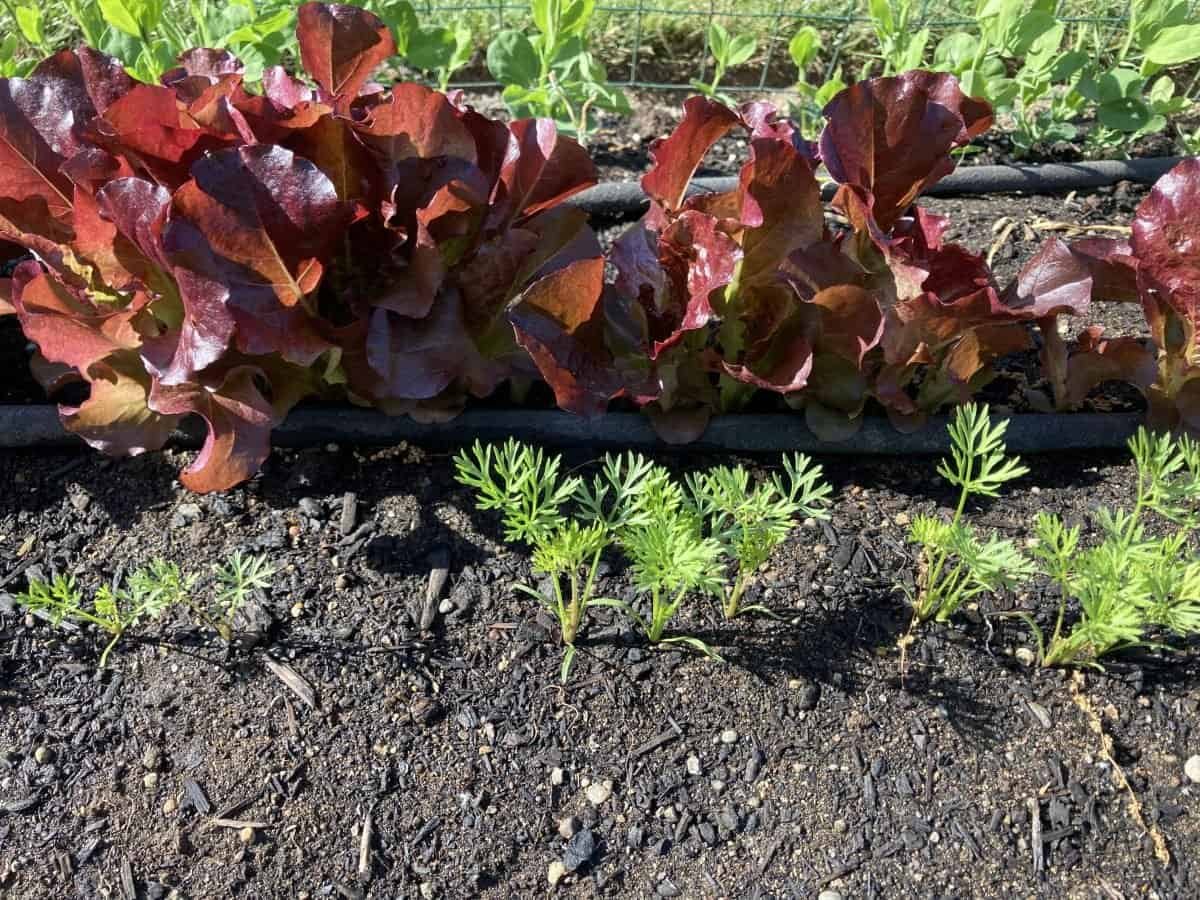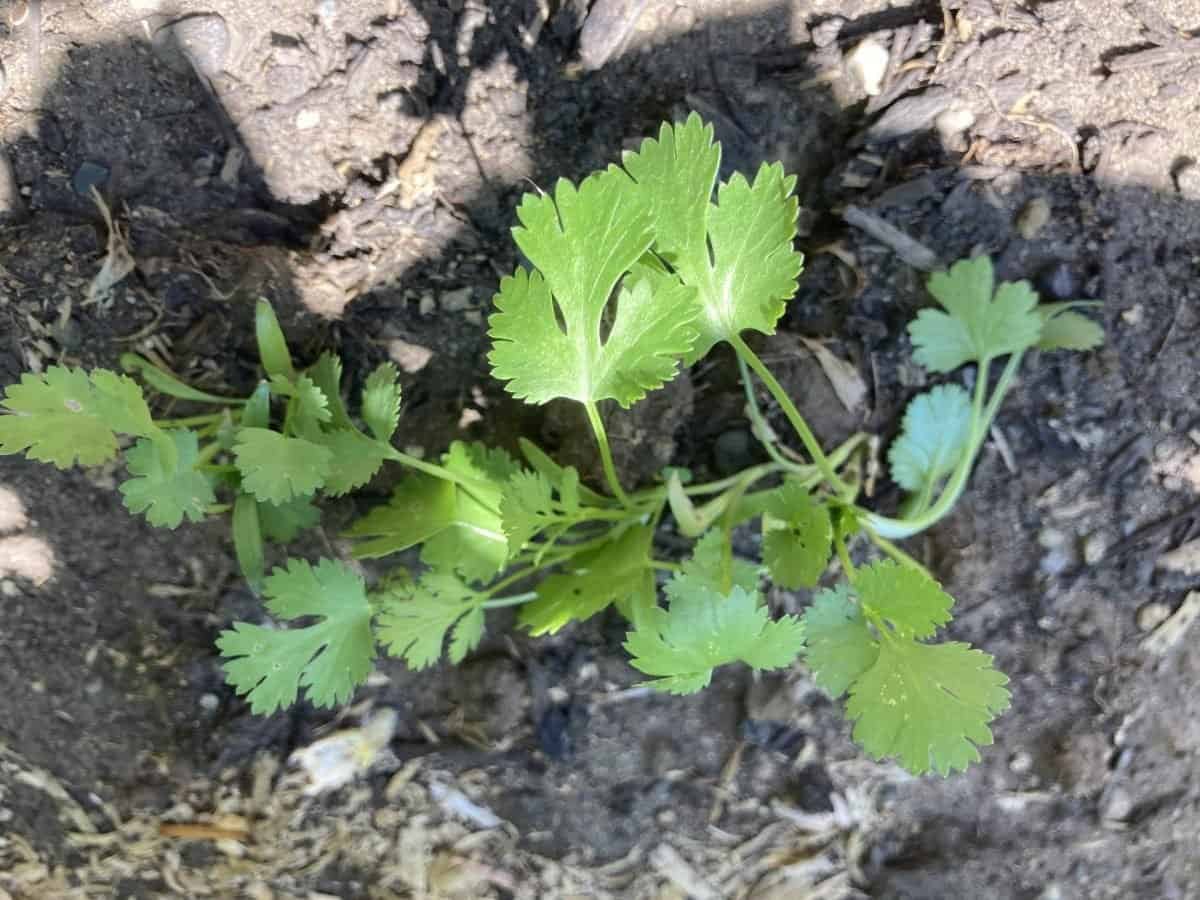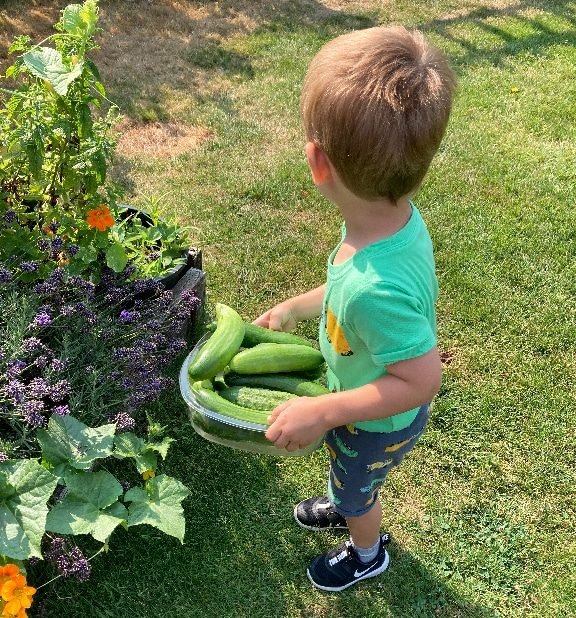The following is a list of the best companion plants for each vegetable in your garden beds and what not to plant as a companion. Companion planting can improve the vegetable’s flavor, and add nutrients to the soil to help the vegetable grow strong and healthy.
Companion plants can deter pests and diseases as well as add some variety in color and fragrance to the garden they do this by either masking the scent of the plants or by drawing predators of the pest to the companion plants.
It is key to attracting beneficial pollinators to your garden. Companion planting enhances the ecology of your garden
Below, we will discuss the different companion plantings for many of your vegetables, herbs, and fruit plants to reduce the need to use harmful chemicals in your garden.
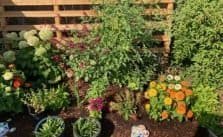
Top vegetables and their companions
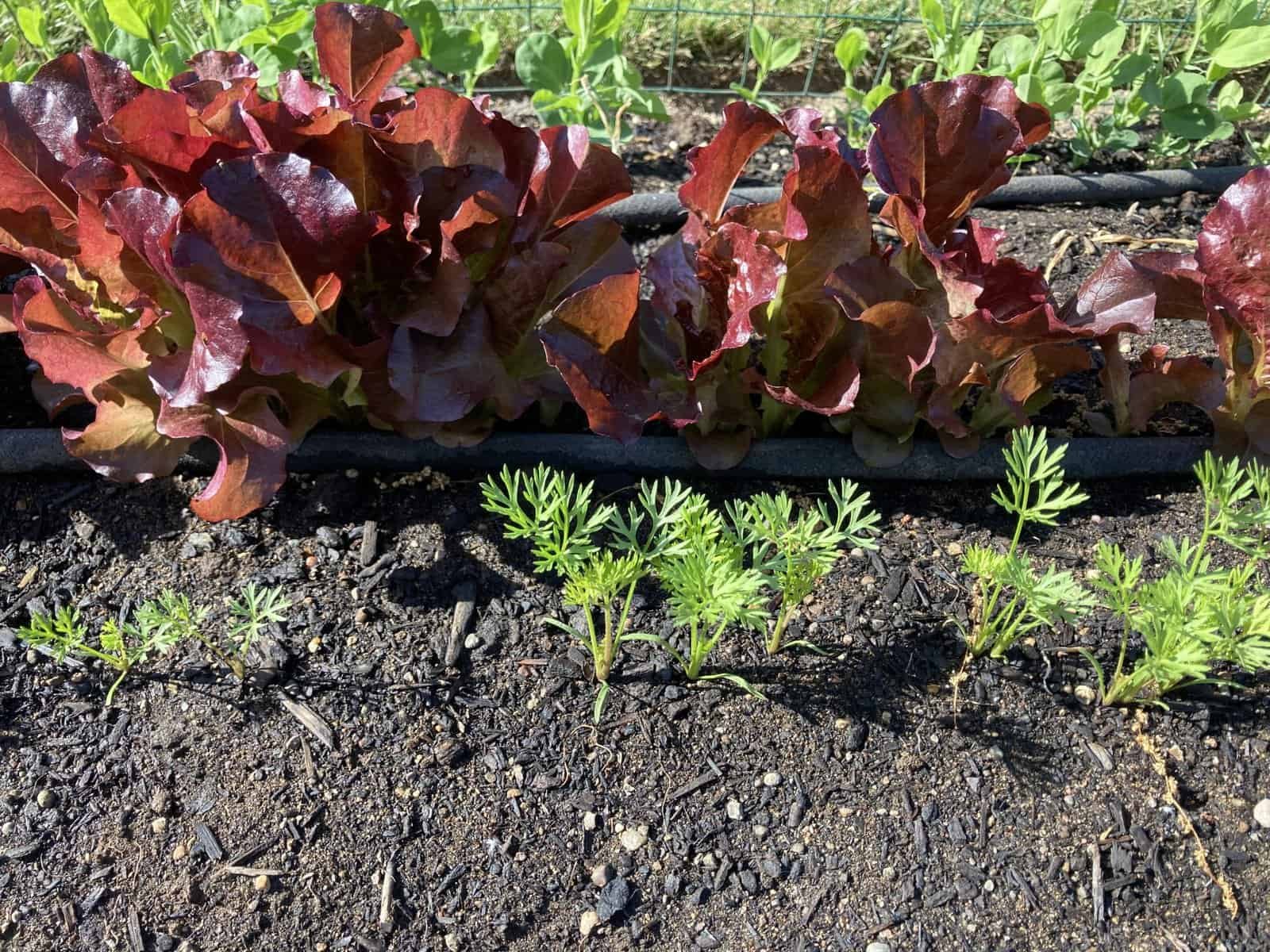
In this photo you can see how lettuce and carrots are great companions to plant together.
Asparagus Companion- Spinach, Basil, Dill, Nasturtiums, Marigolds, Tomatoes, Lettuce. Not compatible- Garlic, Onions, Potatoes
Basil Companion- Tomatoes, Peppers, Radish, Carrots, Cabbage, Marigolds, Beans, Eggplant. Not compatible- Cucumbers
Beans Companion- Sunflowers, Corn, Nasturtiums, Beets, Squash. Not compatible- Garlic, Onions
Beets Companion- Broccoli, Brussels sprouts, bush beans, cabbage, cauliflower, chard, kohlrabi, onions. Not compatible- Pole beans
Broccoli Companion– Onions, Lettuce, Potatoes, Carrots, Cucumbers, Marigolds. Not compatible- Peppers, Tomatoes, Squash, Asparagus, Pole beans, Corn, Strawberries
Cabbage Companion- Garlic, Nasturtiums, Sage, Carrots. Not compatible- Kolorabi, Tomatoes
Carrots Companion– Peas, Onions, Lettuce, Leeks, Radishes Not compatible– Potatoes, Dill
Cauliflower Companion- Celery, Beets, Spinach, Chard. Not Compatible- Peas, Onions, Beans
Cilantro Companion- Basil, Tomatoes, Beans, Peas. Not compatible- Rosemary, Thyme, Lavender
Corn Companion- Cucumber, Squash, Lettuce, Potatoes, Zinnias, Melons. Not compatible- Tomatoes, Broccoli, Kale, Cauliflower
Cucumbers Companion– Beans, Cauliflower, Dill, Onions, Radish, Zinnias, Nasturtiums, Marigolds. Not compatible- Melons, Potatoes, Sage
Dill Companion– Asparagus, Corn, Onions, Cucumbers, Lettuce. Not compatible- Peppers, Eggplant, Potatoes, Cabbage
Eggplant Companion– Peppers, Tomatoes, Potatoes, Spinach. Not compatible- Peas, Beans
Fennel Companion– Not compatible- this herb needs to be kept out of the garden, keep as far away as possible due to bad pests it will attract.
Kale Companion– Celery, Lettuce, Cucumbers, Onions, Peas, Potatoes. Not compatible- Broccoli, Kohlrabi, Swiss chard
Kohlrabi Companion– Lettuce, Peas, Cucumbers, Celery. Not compatible- Kale, Broccoli, Chard
Lavender Companion- All vegetables. Not compatible- Mint
Leeks Companion- Carrots, Cabbage, Tomatoes, Lettuce, Beets. Not compatible- Beans, Peas
Lettuce Companion– Carrots, Cucumber, Onions, Celery, Potatoes. Not compatible– Cabbage, Broccoli, Cauliflower, Kale
Okra- Dill, Mint, Geraniums, Cucumbers, Kale, Broccoli, Summer Savory, Peppers, Egg Plants.
Onions Companion- Tomatoes, Cabbage, Carrots, Swiss Chard, Lettuce. Not compatible- Peas, Beans
Peas Companion- Beans, Carrots, Cucumbers. Not Compatible- Onions, Garlic, Leeks
Peppers Companion- Carrots, Eggplant, Nasturtiums, Tomatoes, Squash. Not compatible- Peas, Beans, Cauliflower, Broccoli, Kale, Cabbage
Potatoes Companion– Beans, Cabbage, Corn, Marigolds. Not compatible– Tomatoes, Cucumbers, Onions, Carrots
Pumpkins Companion- Beans, corn, marigolds, nasturtiums, squash. Not compatible- Potatoes
Radishes Companion- Cucumber, Lettuce, Squash, Beans, Peas. Not compatible- Cauliflower, Cabbage, Potatoes
Rosemary Companion- Kale, Cabbage, Cauliflower. Not compatible- Tomatoes, Carrots, Potatoes, Pumpkins
Sage Companion- Rosemary, Tomatoes, Carrots, Strawberries, Cabbage. Not compatible- Onions, Leeks, Cucumbers
Squash Companion- Corn, Beans, Peas, Raddish, Tomatoes, Peppers, Nasturtiums. Not compatible- Onions, Beans, Potatoes
Spinach Companion- Peas, Beans, Strawberries, Nasturtiums, Lettuce, Squash. Not Compatible- Potatoes
Swiss ChardCompanion- Beans, Lettuce, Cabbage, Broccoli. Not compatible- Mint, Cucumbers, Tomatoes, Potatoes, Mellons
Thyme Companion- Potatoes, Tomatoes, Blueberries, Eggplant, Strawberries, Cabbage. Not compatible- parsley, cilantro, basil
Tomatillos Companion- Carrots, Onions Peppers. Not compatible- Dill, Potatoes, Eggplant.
Tomatoes Companion– Cucumber, Onions, Carrots, Tomatoes, Peppers, Squash, Basil, Spinach, Marigolds, Zinnias. Not compatible– Cabbage, Kohlrabi, Broccoli, Fennel
Fruit Plant Companions
Specific benefits of companion planting
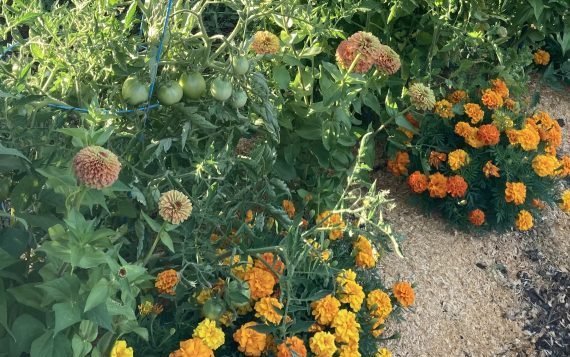
- detract pests against battles, Aphids, Carrot flies, White flies, Cabbage moths, Cabbage flea beetles, Potato beetles, Cucumber beetles, Squash bugs, Tomato Hornworms, and others.
- reduces exposure to different plant diseases making the plants more resistant.
- Adds nutrients to the soil.
Dill and Basil keep hornworms away from tomatoes.
Marigolds are great companions around all vegetables attracting bees for pollination and eliminating nematodes that attack the roots of many vegetables.
Mint repels ants and cabbage moths.
Nasturtiums attract the aphids away from plants so that they do not attack the vegetable plants while attracting pollinators.
Zinnias attract pollinators add great color to the garden and detract cabbage moths while attracting ladybugs which are great garden bugs to have.
Basil adds flavors and nutrients to your tomatoes and helps to increase the production of the tomato plants.
Nasturtiums add flavor to cucumbers and add nutrients to the soil.
Peas and beans can help to add nutrients to the soil for each other for 2nd crop plantings.
Companions can also be beneficial to add shade and windbreaks for plants not needing the late afternoon heat of the day such as beans, peas, corn, and cucumbers. The shade of a plant can also act as a ground cover to prevent weeds and keep soil moisture by blocking the sun on the ground around the plant’s base.
Certain plants can add strong structures for plants to grow up such as corn, sunflowers, and other strong-structured plants.
I have been using companion plants in my vegetable garden for years which has not only improved the appearance of my garden but added beautiful scents as you walk through the garden as well as reduced the pests to attack my vegetables and fruit.
I hope you found this post to be valuable to you when making your choices to pick the best companion plants for your vegetable garden.

